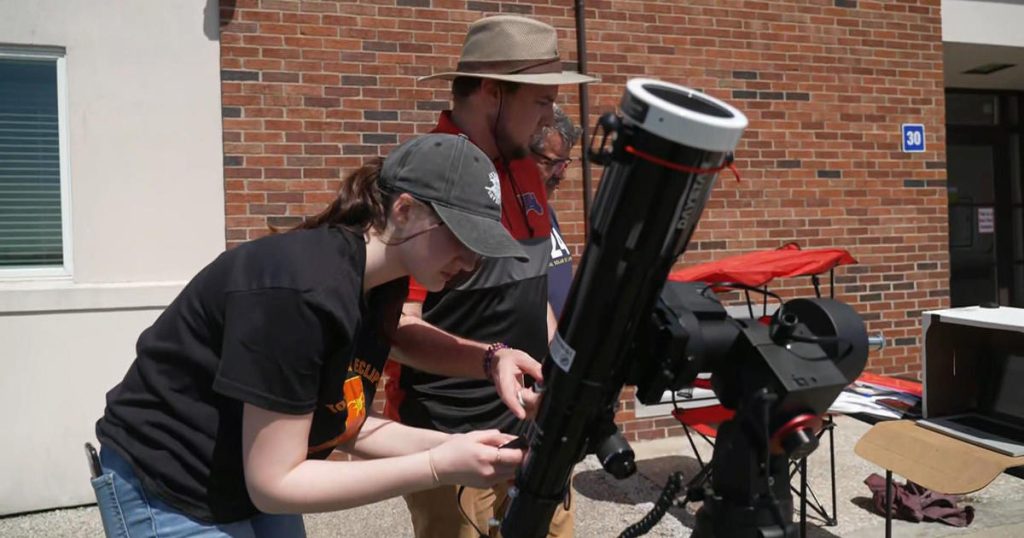High school classes across the country participated in a project with NASA during the 2024 solar eclipse to collect data on the sun’s corona. They used special telescopes to observe the eclipse and gather valuable information for scientific research. This hands-on experience allowed students to engage with real-world scientific projects and contribute to the understanding of solar phenomena.
The eclipse provided a unique opportunity for students to witness a rare natural event and learn about the science behind it. By participating in this project, students were able to gain a deeper understanding of astronomy, solar physics, and data collection techniques. They were also able to collaborate with NASA scientists and researchers, allowing them to see firsthand how their data contributes to ongoing research efforts.
The data collected by the students during the eclipse will be used by NASA to study the sun’s corona and better understand its structure and dynamics. This information is crucial for predicting solar events such as coronal mass ejections, which can impact communication systems and power grids on Earth. By involving students in this data collection process, NASA is able to gather a larger volume of data and engage with the next generation of scientists and researchers.
In addition to collecting scientific data, the eclipse project also provided an opportunity for students to develop important skills such as critical thinking, problem-solving, and teamwork. By working together to collect and analyze data, students gained valuable experience in scientific research and data interpretation. This hands-on learning experience can help inspire students to pursue careers in STEM fields and continue to contribute to scientific advancements.
The eclipse project serves as a model for how educational institutions can collaborate with organizations like NASA to provide students with real-world learning experiences. By participating in projects like this, students are able to see the practical applications of their classroom learning and gain a deeper appreciation for the scientific process. This type of hands-on learning can help students develop a passion for science and technology and inspire them to pursue further study in these fields.
Overall, the eclipse data collection project was a valuable learning opportunity for high school students to engage with NASA and contribute to scientific research. By participating in this project, students were able to develop important skills, gain practical experience in data collection and analysis, and contribute to our understanding of the sun’s corona. This collaboration between students and NASA exemplifies the importance of hands-on learning experiences in inspiring the next generation of scientists and researchers.


